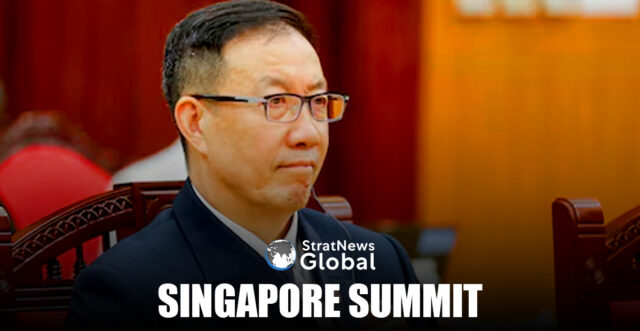China’s defence minister, Dong Jun, will skip a major Asian security summit this weekend—where U.S. Defense Secretary Pete Hegseth is set to make his debut—and will instead send a lower-level academic delegation, the ministry announced on Thursday.
A delegation from the People’s Liberation Army National Defense University will attend the Shangri-La Dialogue in Singapore from May 29 to June 2, spokesperson Senior Colonel Zhang Xiaogang said at a press conference.
Zhang did not elaborate on the decision. In previous years, China has sent its defence minister to the high-profile summit, which is normally attended by defence ministers, senior military and security officials and diplomats from around the world.
Last year’s event resulted in a bilateral meeting between Dong and then-U.S. Defense Secretary Lloyd Austin. Dong later declined a meeting with the Pentagon chief when they were in Laos last November.
Worsening US-China Military Ties
When asked about the possibility of meeting the American delegation this year, Zhang did not confirm. U.S.-China military ties have worsened in recent months, with many working-level military dialogue channels established during the Biden administration suspended since Trump took office.
“China places great importance on U.S.-China military ties, and is open to communication at different levels,” Zhang said.
“We hope the U.S. will earnestly respect our core interests and major concerns, work with us in the same direction, and promote the steady and sound development of military-to-military relations.”
Hegseth’s Debut
Hegseth will make his first extended remarks in Singapore on Saturday on how he envisions U.S. defence policy in the Indo-Pacific. His speech will be closely watched by Asian allies for how the Trump administration views the threat of China’s military modernisation and ongoing tensions in disputed waters across East and Southeast Asia.
U.S. officials previously told Reuters that Hegseth will attempt to persuade Asian allies that Washington is a better partner than Beijing.
Since taking office, Hegseth has promised to “take back” the Panama Canal from Chinese influence and described Japan as “indispensable” for tackling Chinese military aggression in the region.
China has ongoing maritime disputes with the Philippines in the South China Sea, which is also claimed by several other countries in the region. In recent months, Korea and Japan have expressed concern publicly about China-built structures and their military presence in the Yellow Sea and East China Sea.
(With inputs from Reuters)





